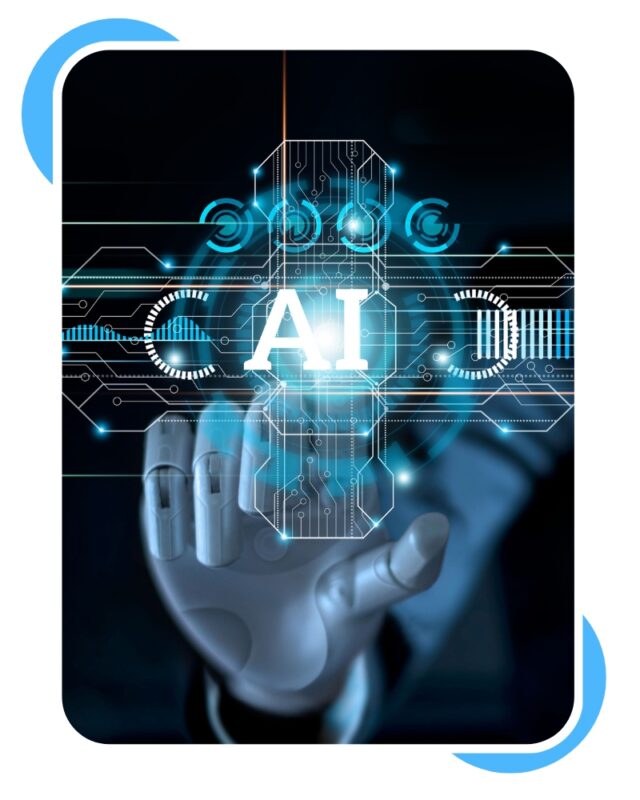
Artificial Intelligence (AI) is a rapidly evolving field that focuses on developing intelligent machines capable of performing tasks that typically require human intelligence. AI has many applications in various industries, such as healthcare, finance, transportation, etc. The field of AI includes multiple subfields, such as machine learning, natural language processing, computer vision, robotics, and more.

How To Learn Artificial Intelligence?
Learning Artificial Intelligence (AI) can be daunting, but anyone can start their journey with the right approach and resources. Here are some steps you can take to begin learning AI:
Online courses are an excellent way to learn AI, as they offer flexible schedules and are often self-paced. Some popular online learning platforms for AI include Udacity, Coursera, and edX.
Many universities offer courses in AI, such as computer science, mathematics, and engineering. These courses often provide a more comprehensive understanding of AI, including the theoretical foundations.
AI boot camps offer an intensive, immersive learning experience designed to prepare students for a career in AI quickly. Some popular boot camps include Springboard, Metis, and Flatiron School.
Self-study is a great way to learn AI, especially for those already working in the field or with some background knowledge. Resources such as textbooks, online tutorials, and research papers can help individuals learn AI at their own pace.

Benefits of Learning Artificial Intelligence:
Learning Artificial Intelligence (AI) can bring numerous benefits. Here are some of the advantages of learning AI:
AI is a rapidly growing field with significant demand for professionals with AI skills. Learning AI can open up new job opportunities in various industries, such as healthcare, finance, and manufacturing.
AI professionals are highly valued and well-compensated. According to Glassdoor, the average salary for an AI engineer is $114,121 annually in the United States.
AI can automate tedious and time-consuming tasks, allowing humans to focus on more critical studies. AI-powered systems can analyse vast amounts of data and accurately make predictions and decisions, increasing efficiency in various industries.
AI can process data faster and more accurately than humans, leading to better decision-making. For example, AI-powered systems can analyse medical data and help doctors diagnose more accurately.
AI can help solve complex problems and provide innovative solutions in various fields. For example, AI-powered robots can perform dangerous tasks in manufacturing plants, and AI-powered drones can monitor crops and detect crop diseases.
Learning AI can improve critical thinking, problem-solving, and analytical skills, which can benefit personal and professional development.
In conclusion, learning AI can bring many benefits, including career opportunities, increased efficiency, improved decision-making, and innovative solutions. As AI continues to grow and evolve, the demand for AI professionals will only increase, making it a valuable skill to acquire.

Career After Learning Artificial Intelligence
There are many career paths available to individuals who learn AI, including:
Here are brief descriptions of some typical AI-related job roles:
An AI researcher or scientist researches artificial intelligence to advance state of the art in machine learning, natural language processing, and robotics. They typically have a strong computer science, mathematics, and statistics background.
A machine learning engineer develops and deploys machine learning models, typically using large datasets to train models that can make predictions or automate tasks. They may also be responsible for optimising models for performance and scalability.
A data scientist uses statistical analysis, machine learning, and other techniques to extract insights from large datasets. They may be responsible for designing experiments, analysing data, and presenting findings to stakeholders.
An AI software developer is someone who develops software applications that incorporate AI technologies, such as chatbots, recommendation engines, or image recognition systems. They may be responsible for designing, implementing, and testing these systems.
A robotics engineer designs, develops, and maintains robotic systems. This may involve developing motion planning and control algorithms, designing mechanical systems, and integrating sensors and other hardware.
A business intelligence developer uses data analysis tools and techniques to help businesses make better decisions. This may involve designing and implementing dashboards, reports, and other devices that allow stakeholders to visualise and interact with data. They may also be responsible for data warehousing and ETL (extract, transform, load) processes.
These are just a few examples of the many roles related to AI and data science. Each position requires different skills and expertise, but all focus on using data and AI technologies to solve complex problems.

Salary After Learning Artificial Intelligence in India
The salary for artificial intelligence (AI) professionals in India can vary widely depending on factors such as their experience level, job role, and industry. Here are some estimated salary ranges for typical AI-related job roles in India:
The average salary for an AI researcher or scientist in India is around INR 10-20 lakhs per year, which can vary depending on the organisation and level of experience.
The average salary for a machine learning engineer in India is around INR 6-18 lakhs per year), but this can vary depending on the organisation and level of experience.
The average salary for a data scientist in India is around INR 6-18 lakhs per year, but this can vary depending on the organisation and level of experience.
The average salary for an AI software developer in India is around INR 5-15 lakhs per year, but this can vary depending on the organisation and level of experience.
The average salary for a robotics engineer in India is around INR 5-10 lakhs per year, but this can vary depending on the organisation and level of experience.
The average salary for a business intelligence developer in India is around INR 4-12 lakhs per year, but this can vary depending on the organisation and level of experience.
It is important to note that these salary ranges are only estimates and can vary widely depending on factors such as the company, location, and industry. Additionally, the demand for AI professionals in India is overgrowing, and there may be opportunities for high-earning positions for those with the right skills and experience.

How to Succeed in an Artificial Intelligence
To succeed in AI, individuals should focus on the following:
Common Challenges in Learning Artificial Intelligence
Some common challenges that individuals face when learning AI include the following:

Advantages and Disadvantages of Artificial Intelligence.
Artificial intelligence (AI) is a rapidly evolving field that has the potential to revolutionise many aspects of modern life. As with any new technology, there are both advantages and disadvantages to the use of AI.
1. Efficiency: AI systems can perform complex tasks much faster and more accurately than humans, saving time and increasing efficiency.
2. Consistency: AI systems are not subject to the same fluctuations in performance that humans can experience, making them more reliable in many applications.
3. 24/7 Availability: Unlike humans, AI systems can work around the clock without getting tired or needing breaks, which can be especially useful for applications that require constant monitoring or operation.
4. Data Analysis: AI systems can quickly analyse large amounts of data and identify patterns that might be difficult for humans to detect. This can be useful in fields like finance, marketing, and healthcare.
5. Improved Decision Making: AI systems can analyse data and provide insights to help humans make better decisions in various fields.
1. Job Displacement: AI systems can replace human workers in many tasks, leading to job loss and economic disruption.
2. Bias: AI systems can perpetuate and even amplify biases in the data they are trained on. This can result in unfair or discriminatory outcomes.
3. Lack of Creativity: While AI systems can perform many tasks quickly and accurately, they cannot currently be creative as humans can.
4. Cost: Developing and implementing AI systems can be expensive, limiting their accessibility and usefulness for some applications.
5. Security: AI systems can be vulnerable to hacking and other security breaches, which can lead to severe consequences for individuals and organisations.
Overall, the advantages of AI are significant and have the potential to benefit many areas of society. However, it is essential to carefully consider and address the potential disadvantages to ensure that the development and use of AI is responsible and ethical.

FAQs Related to Artificial Intelligence
Sure, I would be happy to help! Here are some frequently asked questions related to Artificial Intelligence:
Artificial Intelligence (AI) is the simulation of human intelligence processes by machines, especially computer systems.
The benefits of AI include improved efficiency and productivity, improved decision-making and accuracy, and the ability to perform tasks that are too dangerous or difficult for humans.
The disadvantages of AI include the potential for job loss due to automation, the potential for bias and discrimination in AI algorithms, the lack of transparency in decision-making, and the potential for misuse and unethical use of AI.
Some popular AI applications include natural language processing (NLP), image and speech recognition, predictive analytics, and robotics.
Several programming languages are commonly used in artificial intelligence (AI) development. Some of the most popular ones include:
1. Python: Python is widely used in AI because it is easy to learn, has many libraries and frameworks available, and has a simple syntax that makes it easy to write code.
2. R: R is a programming language specifically designed for statistical computing and graphics and is often used in data analysis and machine learning applications.
3. Java: Java is a popular general-purpose programming language commonly used in AI development because of its stability, scalability, and performance.
4. C++: C++ is a high-performance programming language often used in AI development because it allows for efficient memory management and is highly optimised for speed.
5. Lisp: Lisp is an older programming language still used in AI development because of its powerful features for symbolic reasoning and pattern matching.
6. MATLAB: MATLAB is a programming language often used in AI development for its strong numerical computing capabilities and ease of use for complex mathematical operations.
These are just a few examples of the many programming languages used in AI development. The choice of a programming language often depends on the specific application and the developer’s preferences and experience.
While a computer science, mathematics, or engineering degree can be helpful, it is only sometimes required to work in AI. Many individuals enter the field through alternative routes such as online courses, boot camps, or self-study.
Skills needed to work in AI include a strong foundation in mathematics and statistics, programming skills, familiarity with machine learning algorithms and tools, and problem-solving skills.
The future of artificial intelligence (AI) is both exciting and uncertain. As AI continues to advance, it has the potential to revolutionise many aspects of our lives, from healthcare and transportation to finance and entertainment. Here are some possible trends and predictions for the future of AI:
1. Continued Growth and Advancement: AI is already advancing rapidly, and this trend is likely to continue as researchers develop new algorithms, improve hardware, and gain access to more data. This could lead to natural language processing, computer vision, and robotics breakthroughs.
2. Increased Automation: As AI systems become more capable, they are likely to take on more tasks that are currently performed by humans, leading to increased automation in many industries.
3. Enhanced Personalization: AI systems are already being used to personalise experiences and services for individual users. This trend will likely continue as AI becomes more sophisticated and capable of processing significant data.
4. Ethical and Societal Challenges: As AI becomes more powerful, it will become increasingly important to address ethical and societal challenges, such as the impact on jobs and the potential for bias in decision-making algorithms.
5. Integration with Other Technologies: AI will likely become more integrated with other emerging technologies, such as 5G networks, blockchain, and the Internet of Things, leading to new applications and use cases.
